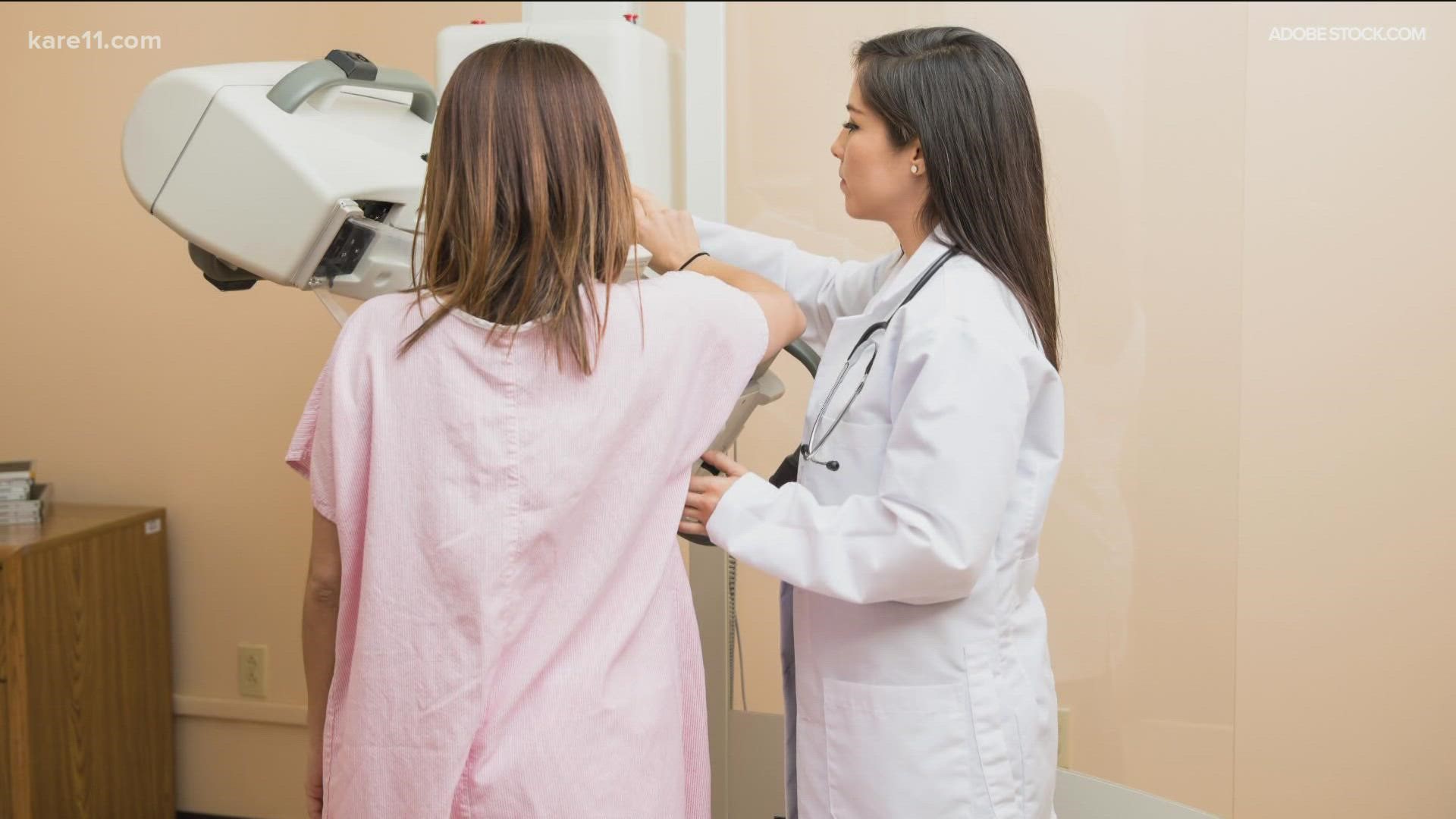MINNEAPOLIS — It's National Hispanic Heritage Month, which runs from September 15 through October 15. While celebrating Latinx culture, it is a chance to highlight health care disparities impacting the community, especially around breast cancer as the pandemic has deepened disparities in care.
Dr. Domingo Perez is an oncologist with Allina Health. He said breast cancer is less common in Hispanic women then in non-Hispanic white and Black women.
But there's a big "but."
"Breast cancer in Hispanic women is the most common type of cancer and the deadliest one," Dr. Perez said. He said the problem stems from this type of cancer being diagnosed at a later stage, therefore making it less curable.
Dr. Perez said the reasons are many and complicated. Some women are poor or don't have insurance coverage, their socioeconomic status creating barriers to doctors or services like genetic testing. Perez said there are also cultural myths.
"Some women think that if they have a lump in their breast it’s better not to touch it or press on it because if you do it’s going to get worse," he said. "We need to explain to those ladies that breast cancer, in many cases, in most cases I would say is curable if it’s diagnosed early."
Dr. Perez said education around mammograms is a starting point. He said people need to know that mammograms are intended to diagnose breast cancer early, giving patients more of a chance to beat it. He recommends making mammograms an annual check-up in your 50s, and you can start even earlier if you’re higher risk.
Allina Health said some women with gene mutations have a 70% to 80% likelihood of getting breast cancer.
Another reason to check your breasts earlier is when you are diagnosed at a later stage, chemotherapy is much more intense and patients will experience more side effects.
Dr. Perez also said understanding weight control management and avoiding hormone replacement therapy can reduce risk. Breastfeeding can also reduce exposure to hormones that can promote breast cancer cell growth. Dr. Perez said the longer women breastfeed, the better. The University of Texas MD Anderson Cancer Center shows women should breastfeed their babies for at least six months if possible, while other research said a year can help lower the risk of breast cancer.
Progress has been made to diagnose cancer earlier thanks to improved and enhanced mammography screenings and contrast MRI screenings. There is also better genetic testing and tumor targeting with many treatments.
Dr. Perez said making mammograms screenings available, as in bringing them to communities, will also help.
Allina Health said it is learning it needs to treat patients with comprehensive care in one place.

